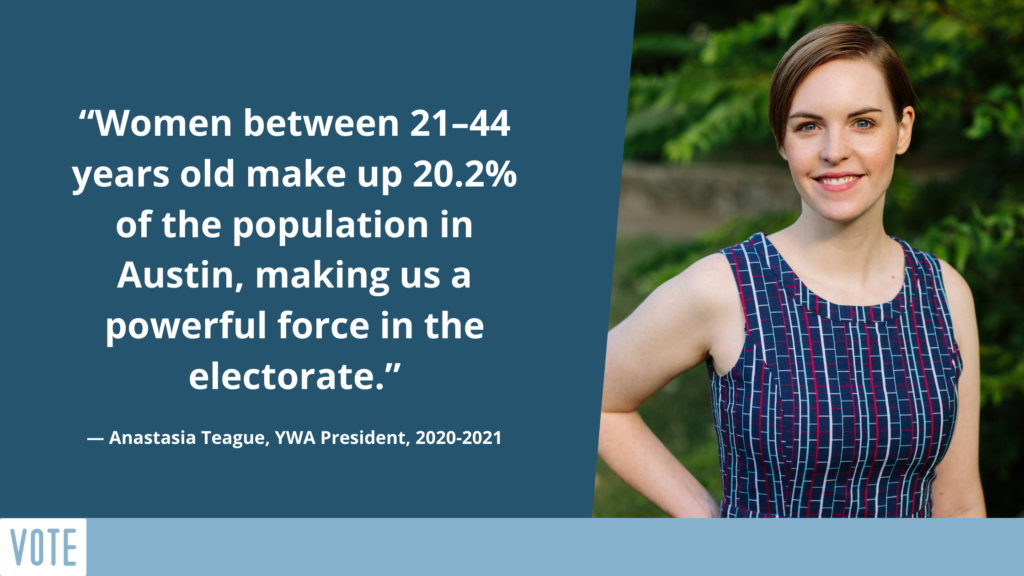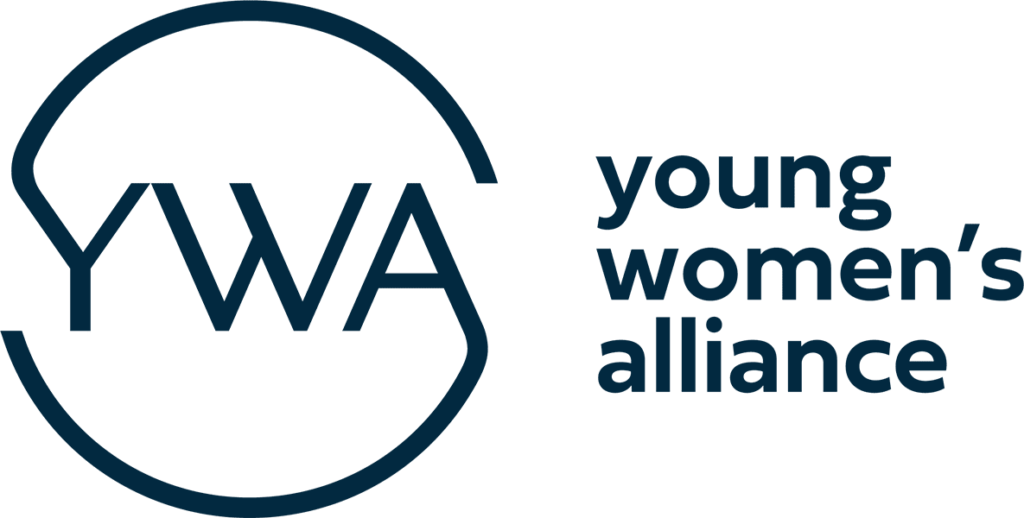

Women between 21–44 years old make up 20.2% of the population in Austin, making us a powerful force in the electorate.
This is the last week of Early Voting before Election Day on Tuesday, November 3. When deciding who to vote for, understand the policies each candidate would support, regardless of their party affiliation. Once you know more, challenge your networks to vote in support of issues affecting young women.
3 Issues to Consider in Your Voting Decision
Here are three issues that we as young women must consider when voting:
1. Racial Equity
Gender equity cannot be achieved without racial equity. This is especially true in Austin, where 35% of women 21-39 identify as Latinx and the share of the population who identify as Black or African American has decreased over time, currently at 7%.
We know that women experience systemic barriers to advancement in the workplace. When you add the effects of institutionalized racism, there is a compounding effect of greater inequality. Women experience inequality differently based on their race.
Representation matters. Each election cycle gives us the opportunity to elect a more diverse group of women into leadership.
2. Ending Violence Against Women, Including Transgender Women
Violence against women can include intimate partner violence, sexual violence, and violence against transgender women, to name a few. Globally, 1 in 3 women “have experienced either physical and/or sexual intimate partner violence or non-partner sexual violence in their lifetime,” based on estimates by the World Health Organization.
As reported by the Dallas Morning News, “more transgender people have been killed in Texas than in any other state” in the past 5 years.
With one national candidate accused of sexual misconduct by 26 different women, this issue has taken center stage for young women, especially those of us who work to support and empower young women to reach their full potential.
3. Equal Pay
It will be 257 years before men and women have equal pay based on pre-COVID data from the World Economic Forum. Every year, they release a report on the Global Gender Gap. What will that report look like this year?
Because of COVID-19 and the move to virtual schooling, parents have been forced to take on more responsibilities at home — with much of the burden placed on mothers. Maintaining a successful career while simultaneously homeschooling and caring for children is an impossible situation.
1 in 4 women is considering “downshifting their careers or leaving the workforce completely.”
Young women are especially vulnerable, because they are caring for younger children who frequently need more attention and time in order to focus during virtual learning.
How are the candidates talking about this burden on women? Which candidates are experiencing this and could represent us in policy discussions around this topic?
Make Your Voice Heard
We all have the individual responsibility to consider the issues at stake in the current election that most affect young women in the workplace.
With the 501c3 nonprofit status of the YWA Foundation, YWA does not lobby for candidates or urge you to vote for a specific party. We do, however, encourage you to be aware of the issues that affect young women and how each candidate (up and down the ballot) would vote on policies that impact women in the workplace.
As a community of young women, we can convene and discuss the issues around the election without YWA taking a stand on any one candidate. If you would like to discuss the election, before and/or after the results, please join the “Election Open Forum” channel in the YWA Slack Workspace.
To learn more about where our local and national candidates stand on these issues (and more), Vote411 is a great resource.
Other election resources:
*Demographic statistics are based on 2019 data from Claritas.

1 comment. Leave new
Well said. Alarming statistics. 1 in 4 women thinking of leaving the workforce!!! We’re going in the wrong direction. Thanks for encouraging YWA members. Your leadership is exemplary, Anastasia.